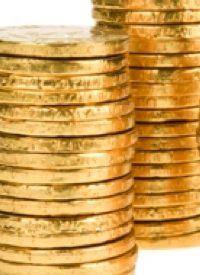
Americans are rightly troubled by much in modern Islam. There is one area, however, in which America might find laudable approaches from Muslims. The government of Kelantan, a state within the nation of Malaysia, has introduced a new monetary system that is based upon standardized weights of gold and silver coins. These dinar and dirham coins were once common within the old Ottoman Empire, just as species — gold and silver money — was once common within most of the civilized world.
Paper money is relatively new in human history. When it was first introduced, paper money represented a solemn promise to be redeemed in a specific weight of precious metal, typically gold. The very term “dollar” represents a weight of gold, rather than some abstract value of American currency. During much of our nation’s history, banks issued bills as well, and debts were often paid in the notes of reputable banks that were considered at least as reliable as the federal government.
The progressive disconnection of currency from any objective standard, predictably, has led to abuse by national governments. Weimar Germany is just one example of how hyper-inflation, produced by a national government wishing to magically create wealth by creating more and more paper money, led to horrible internal economic collapse. The “stimulus” package of the Obama Administration is another example of how manufactured national debt and the frantic churning of printing presses leads, inevitably, to a suspicion that a national government is abusing the public trust.
Even coins, like those soon to be used in Malaysia, have been subject to abuse throughout history. Since the days of the Roman Empire, at least, gold and silver coins have been “clipped” — a portion of the outer rim of the coin was removed so that the objective value of the precious metal was reduced, but the apparent value of a particular type of coin remained unchanged. Governments seem to have an almost-irresistible yen to cheat their subjects by abusing a monopoly over money or the trust that people place in government-issued money.
Muslim officials in Malaysia have proposed the need for gold coins as a way of protecting the people against inflation.
They note that the value of gold vis-à-vis the dollar has increased five hundred percent in the last decade. The Muslim leaders of Kelatan are conscious of the potential political attractiveness of their move, and they are introducing gold coins as a form of government money on a small scale. However, if the gold allows some Malaysian to weather the almost-inevitable economic storms that should descend upon the world in the near future, then it is likely that other nations — maybe the United States as well — will look closer at the inherent power of stable, fixed values for money.



